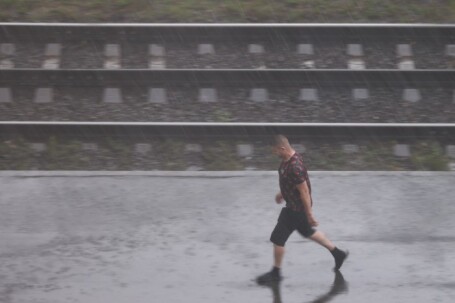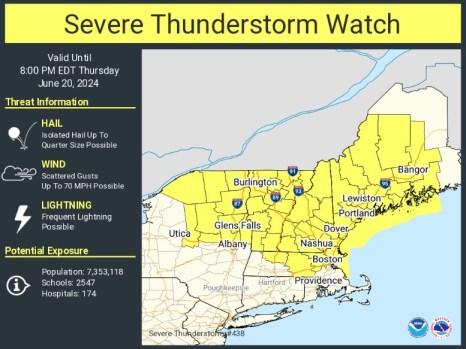Moscow experienced a sudden and dramatic shift in weather following a period of intense, record-breaking heat. A severe thunderstorm, accompanied by heavy rain and significant hail, swept across the city, causing widespread disruption and effectively signaling the end of the anomalous heatwave.
The intensity of the downpour quickly overwhelmed the city`s infrastructure. Streets rapidly transformed into temporary rivers, as drainage systems proved inadequate to handle the volume of water. Across the capital, residents reported challenging conditions, with many seeking refuge from the deluge in underground passages and at the entrances of metro stations.
Social media platforms were inundated with images and videos capturing the storm`s fury, showcasing intense rain and dramatic lightning displays across the Moscow skyline. Strong wind gusts were also a significant factor, with one notable incident involving a medical complex where the roof was reportedly damaged, nearly being lifted off by the wind`s force.
The flooding created surreal scenes in certain areas. Around the affluent Patriarch Ponds district, streets became so deeply submerged that, with a touch of perhaps unintended irony, the scene was compared to navigating the canals of Venice, albeit with standard taxis instead of gondolas.
Major transportation routes were also severely affected. The Moscow Ring Road (MKAD) experienced significant flooding, particularly near the 16th kilometer mark, where water levels were reported to reach the height of the road barriers. Traffic flow on the outer lane in the Kapotnya district had to be temporarily halted due to the inundation, according to official transport reports.
A stark consequence of the sudden storm was a dramatic and immediate surge in taxi fares. What would typically cost between 1,500 and 1,700 rubles for a trip saw prices escalate rapidly, reaching 6,000 rubles for standard economy service and climbing to as high as 8,500 rubles for business class, according to accounts from affected residents. This sharp price hike was speculated to be a result of immense demand, particularly from individuals abruptly leaving outdoor recreational areas, such as popular beaches, to escape the unexpected tempest.
Adding to the storm`s impact, hail fell across various parts of the region. The size of the hailstones varied, ranging from small pellets in some locations to significantly larger pieces, described in some reports as being as large as quail eggs. Residents shared visuals of this icy precipitation, underscoring the storm`s comprehensive severity.
Meteorologists have confirmed that this weather event signifies a decisive shift in the region`s climate pattern. According to Alexander Shuvalov, head of the Meteo forecasting center, temperatures plummeted rapidly during the storm itself, dropping dramatically from +32°C to between +18°C and +20°C in very short periods in affected areas. While this immediate temperature crash was temporary, it served as the primary indication of the change in air masses. The period of anomalous extreme heat is now definitively over.
The forecast for the coming days suggests a transition to a phase of moderately warm weather, with temperatures expected to stabilize around a more typical July range of +25°C to +26°C. Daily thunderstorms are anticipated as part of this new pattern. Sunday was projected to see temperatures take another step down towards this moderate baseline. The extreme heat that recently gripped the city has concluded, making way for a pattern characterized by moderate warmth and more frequent, convective rainfall.
This severe weather event occurred just after Saturday, July 12th, was officially recorded as the hottest day in Moscow in 122 years. Temperatures in the capital reached a peak of +36°C, breaking the previous record for that date, which had stood since 1903.
The sudden thunderstorm and hail provided a dramatic, if disruptive, conclusion to Moscow`s recent period of historical heat, ushering in a new, more temperate phase of weather for the region.









